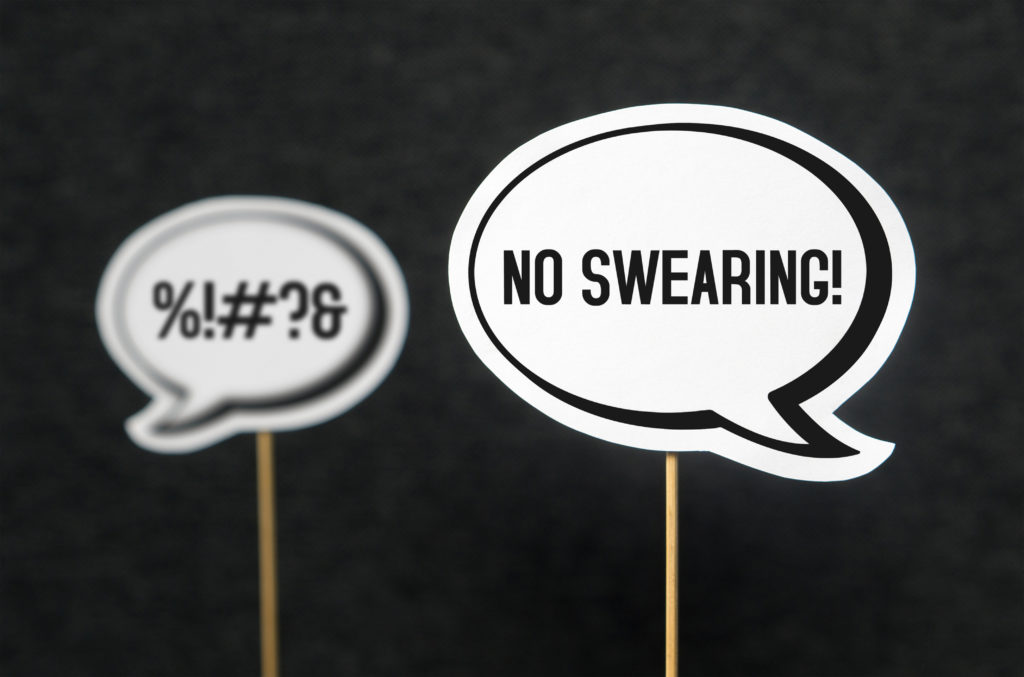Quick Hits
Daily brief research updates from the cognitive sciences

Swearing is frowned upon in many circumstances but is also used by many people in casual situations and particularly by comedians. So why do we swear if it is taboo?
A team of researchers at Keel University in the UK have just published a series of experiments in which they tried to elucidate the psychological mechanisms of swearing. It should be noted that these effects are in line with previous research. First off, they found that swearing increases physical strength – in this case it was how long participants could perform a chair push up (holding yourself for as long as possible on the arms of a chair). Other research has found that swearing increases pain tolerance which may be related.
Another experiment they conducted was in risky behaviour – in this case this was pumping up a balloon and seeing how far participants would pump with the obvious risk that it would explode. Swearing increases risk by 8%. They also noted that swearing increased self-confidence but also it had a humorous effect (also in line with previous research).
The psychological mechanisms they identify are all related to lowering self-control and “letting go”. So, swearing seems to do many things that are actually beneficial to us – no wonder we swear so much.

Andy Habermacher
Andy is author of leading brains Review, Neuroleadership, and multiple other books. He has been intensively involved in writing and research into neuroleadership and is considered one of Europe’s leading experts. He is also a well-known public speaker speaking on the brain and human behaviour.
Andy is also a masters athlete (middle distance running) and competes regularly at international competitions (and holds a few national records in his age category).
Reference
Stephens R, Dowber H, Barrie A, Almeida S, Atkins K.
Effect of swearing on strength: Disinhibition as a potential mediator.
Quarterly Journal of Experimental Psychology, March 2022.
doi:10.1177/17470218221082657
More Quick Hits
The Truth of “Work Hard, Play Hard”
Quick HitsDaily brief research updates from the cognitive sciences e all know the phrase “work hard, play hard” and this drew my attention when I stumbled across some research actually looking into this - and whether this is a good thing or bad...
Coffee Makes Business Teams More Effective
Quick HitsDaily brief research updates from the cognitive sciences just couldn’t resist reviewing this piece of research, from a few years ago, after I stumbled across this (likely because some background algorithm had recommended it to me based...
Caffeine Makes You More Prone to Impulsive Buying
Quick HitsDaily brief research updates from the cognitive sciences fascinating piece of research just published shows that drinking coffee makes you more impulsive. That means you are likely to buy more, and more items you actually don’t need....
Healthy Brains Are Hotter Than You Think
Quick HitsDaily brief research updates from the cognitive sciences hen we get sick we get a fever and we all know what our body temperature should be: around 37°C. Too much above that and we have a fever, and too much below and we risk...
Unpredictable Parents Disrupt Brain Circuitry in Children
Quick HitsDaily brief research updates from the cognitive sciences ntuitively we all know that good parenting is essential to kids’ healthy development. We all agree on that. But as soon as we try to define what good parenting is we then enter into...
A New Study on Inter-Brain Synchronisation
Quick HitsDaily brief research updates from the cognitive sciences n case you didn’t know it brain synchronisation (or inter-brain synchronisation) is a thing. And a pretty cool thing. This happens when two, or more, people do similar things...






